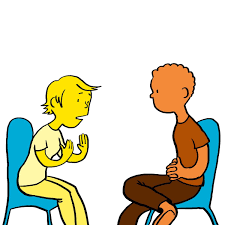In a world where we often share our joys and triumphs on social media, it’s easy to forget that everyone faces battles, some of which remain hidden beneath the surface. Mental health struggles affect millions, and the individuals facing them need friends more than ever. Consequently, if a friend or loved one in your life is struggling with mental health issues, you can make a significant difference by offering compassionate support. In this guide, we’ll explore how to provide that support, all the while strengthening your relationship.
Before diving into how to help, it’s essential to understand mental health better. Mental health issues can manifest in various ways, from anxiety and depression to bipolar disorder and schizophrenia. These conditions are often invisible, making it crucial to approach the topic with sensitivity and empathy.
1. Initiate Open Conversations:
Start by letting your loved one know you are there to listen without judgment and Initiating an open conversation about their feelings and experiences can provide relief and foster trust. You can also use active listening techniques, such as paraphrasing and validating their emotions, to create a safe space for them to open up.

For example, when your friend comes to you and says I have been feeling very down and disconnected from everything. It’s like I can’t find joy in things I used to love.
You will rephrase it making sure that your friend feel ensured that you are listening him, It sounds like you’ve been experiencing a deep sense of sadness and a loss of interest in things that normally bring you happiness, Can you tell me more about what you have been going through?”
Friend: Yeah, it’s been difficult, I’m not sure why I’m feeling this way, and I’m afraid I’ll burden others with my problems.
You: I want you to know that your emotions are important to me, and it’s perfectly fine to express them to me. You are not a burden. I’m here to support you during this difficult time because I care about you.
2. Educate Yourself:
Take the time to educate yourself about their specific condition. Knowledge is power, and understanding their challenges and treatment options can help you provide better support. Search for reputable sources and engage in empathetic conversations with them about their experiences.
3. Offer Practical Help:
Mental health struggles can make daily life challenging. Offer practical assistance, such as helping with household chores, grocery shopping, or providing transportation to therapy appointments. Small gestures can go a long way in easing their burden.
4. Encourage Professional Help:

Encourage your loved one to seek professional help if they haven’t already. Offer to assist in finding a therapist or psychiatrist and even accompany them to appointments if they’re comfortable with it. Remember that professional guidance is often a crucial part of their recovery journey.
5. Be Patient and Non-Judgmental:
Recovery is a process, and there may be setbacks along the way. Be patient and understanding, avoiding judgment or criticism. Your unwavering support can be a lifeline during challenging times.
6. Self-Care for You:
Supporting someone with mental health challenges can be emotionally draining. Don’t forget to prioritize your own mental health. Seek support from friends, family, or a therapist when needed. Self-care is not selfish; it’s essential for both of you.
Conclusion:

Supporting a friend or loved one struggling with mental health is a meaningful and compassionate endeavor. By initiating open conversations, educating yourself, offering practical help, encouraging professional assistance, and practicing patience, you can be their rock in times of need. Remember, your support can make a world of difference, strengthening your bond and helping them on their path to recovery. In this journey, empathy and understanding are your most potent tools, lighting the way towards healing and hope.







